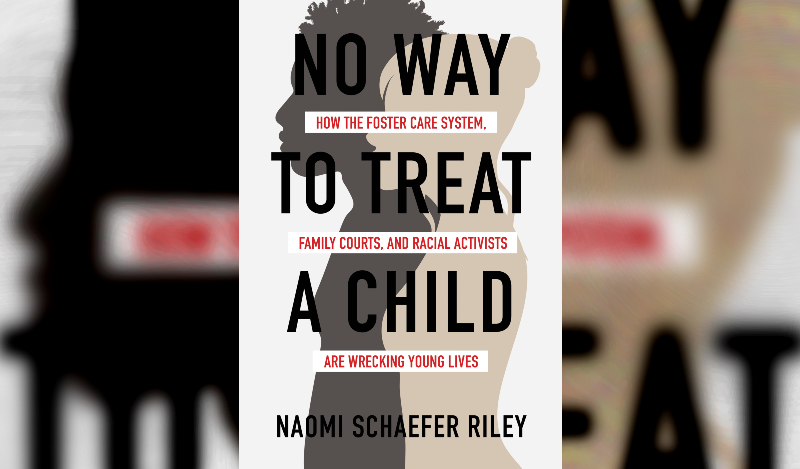Currently, there are more than 400,000 children in foster care in the United States. Usually, the mainstream media only chooses to tell the most dramatic, heartbreaking stories of abuse and neglect.
While these stories are important, Naomi Schaefer Riley, a graduate of Harvard University and former editor at The Wall Street Journal, has a different idea.
She has written an upcoming book providing a comprehensive examination of the foster care system in the United States titled, No Way to Treat a Child: How the Foster Care System, Family Courts, and Racial Activists are Wrecking Young Lives. It will be released on October 12, 2021.
A description of her book notes that frequently in the foster care system, “Kids in danger are treated instrumentally to promote the rehabilitation of their parents, the welfare of their communities, and the social justice of their race and tribe.”
The Daily Citizen spoke to Riley about her new book and asked her about this.
“The foster care system is built around parents and trying to give parents as many chances as possible before placing children with foster families,” Riley said.
She noted that many parents are struggling with substance abuse, mental illness, poverty, and domestic abuse situations.
Riley said that though she has sympathy for parents in difficult situations like these, when courts and administrators try to give parents as many chances as possible, “years of child’s life can be wasted.”
“Especially in the 0-3 age range, having secure attachments is very important,” she added.
In an advance copy of the book provided to The Daily Citizen, Riley writes that there are “countless … ways in which the system seems to prioritize other concerns over the best interests of the child.”
“In order to serve the whole family – not just the children – the system prioritizes kinship care, transferring kids to the care of extended family, even when those family members suffer from the same dysfunction and even when those family members can’t pass a criminal background check.”
Additionally, the system works very slowly, “even though these delays can irreversibly affect kids’ development.”
Riley also told The Daily Citizen that part of the problem with the foster care system is that states and administrators don’t do a good job supporting foster parents.
“States don’t even know how many foster families they have,” Riley said. “They also don’t focus on finding and placing children with quality foster families. Often, administrators won’t even return phone calls from potential foster parents.”
Dr. Sharen Ford, Director of Foster Care & Adoption at Focus on the Family, spoke to The Daily Citizen about the importance of balancing a child’s needs with those of the parents during the process of reunification.
“The goal of child welfare when removing a child is about safety,” Dr. Ford said. “Reunification is about believing that people can change. For the sake of the child, timely change needs to occur. The clock is ticking, which is why the services must be available and families need to do the work to regain custody of their children. Children should only be returned when it is safe to do so.”
“Everyone wants to do what’s in the ‘best interest of the child’. The courts, the child welfare agency, attorneys and community organizations try to balance parent’s rights while appropriately seeking safe and nurturing care for children,” Dr. Ford added. “It’s never easy. There’s room for lots of improvement. Children need temporary quality foster families while their families get the help they need.”
“That’s why it’s important that states and local child welfare agencies welcome faith based foster care and adoption agencies to increase their recruitment efforts.”
Additionally, Dr. Ford noted that there should be room for grace and healing within the process of reunifying children with their biological parents.
“There shouldn’t be a general rule of thumb. Rather, every case should be weighed on its own merits and the evidence should be weighed in each individual case,” she said.
Riley said that an important factor in her decision to write the book was when she first became interested in the foster care system during her time at The WSJ, editing their Houses of Worship column.
“Churches had become more and more involved in foster care and adoption, and this really spawned a revolution in the system,” Riley said.
Then, during her time writing for The New York Post, she covered some of the most high-profile child abuse cases in New York City, causing her to want to understand why the system didn’t save children whom they knew were in danger.
Speaking about the book, Riley said, “I hope readers will come away with a sense of hope and that there is a possibility for change. And many people, especially people of faith, are asking themselves, ‘What does my faith ask me to do about this?’”
To learn more about No Way to Treat a Child, click here. Additionally, check out Focus on the Family’s foster care and adoption program Wait No More, which inspires and equips families to get involved in the lives of kids in need.
Photo from AEI.






